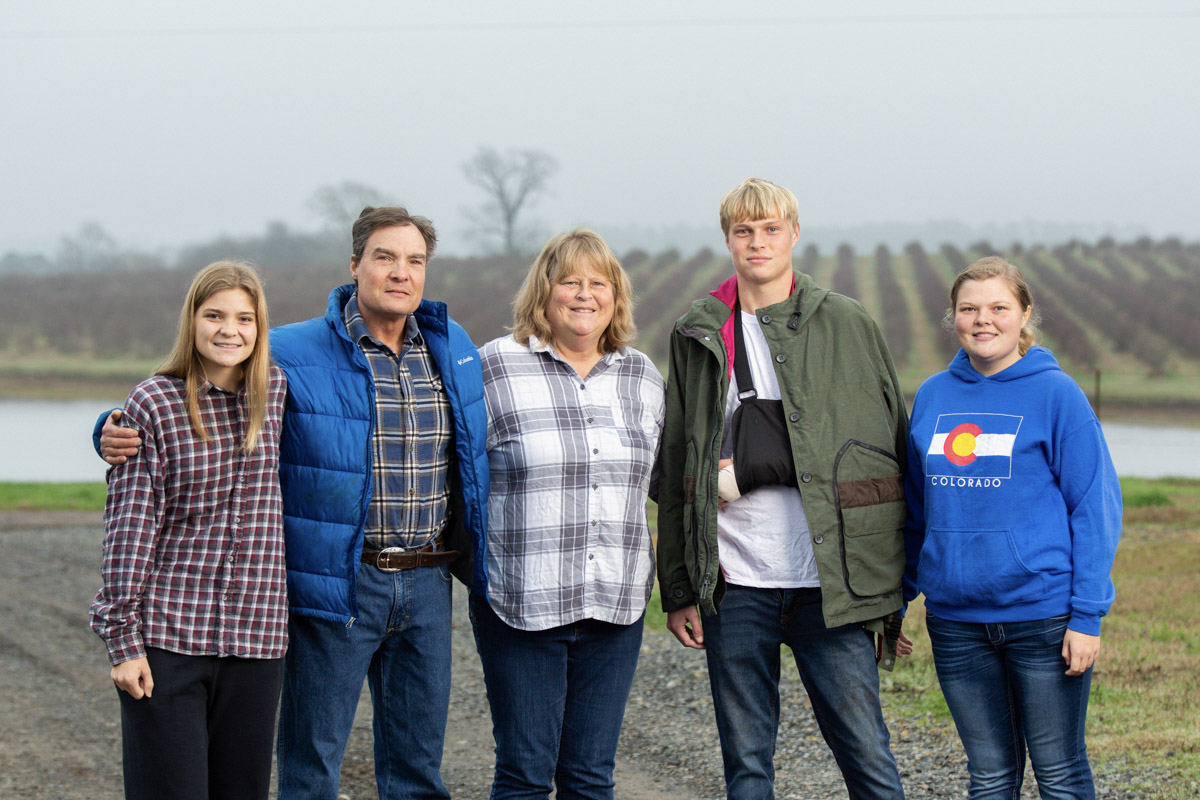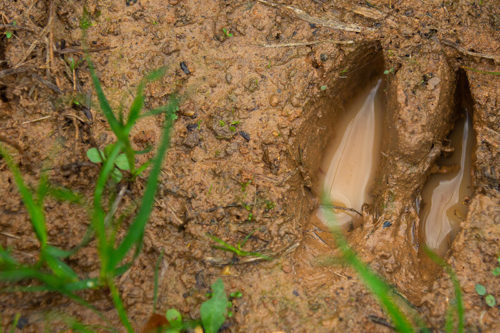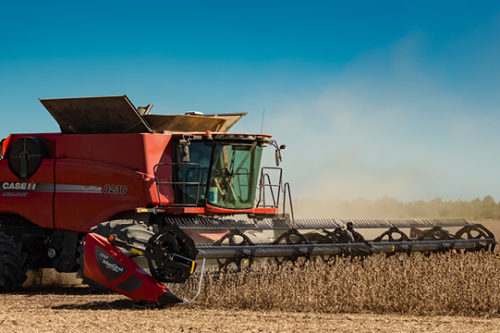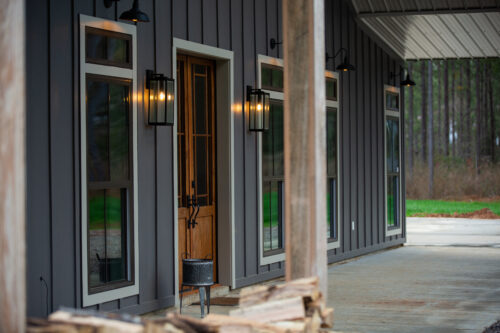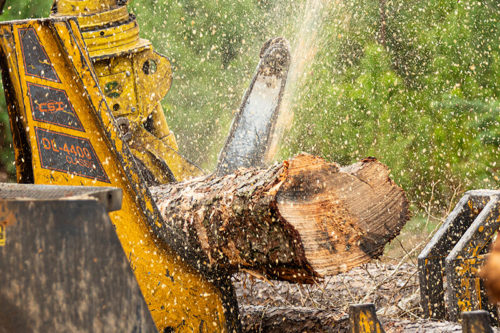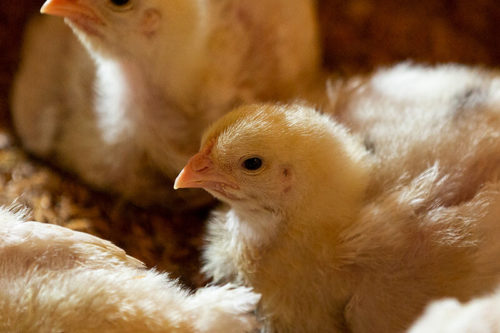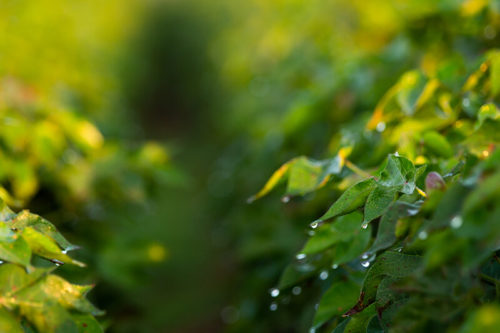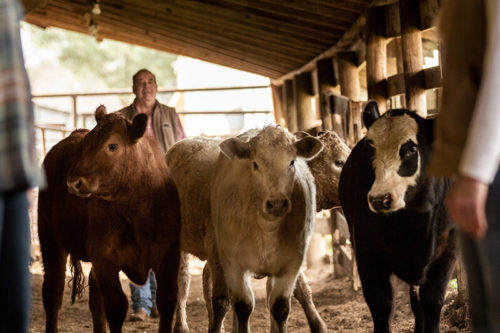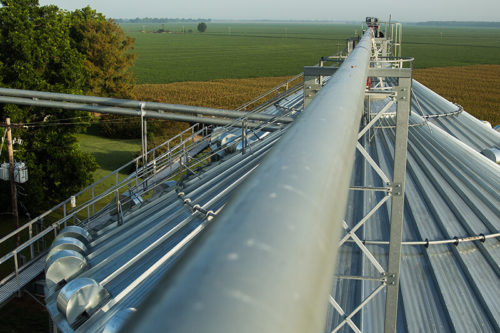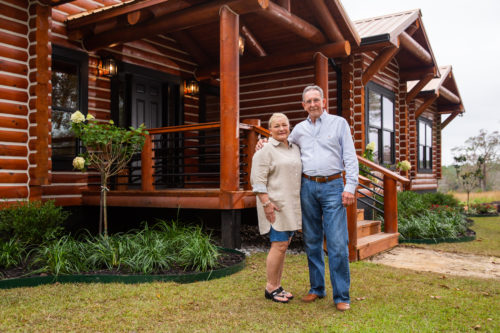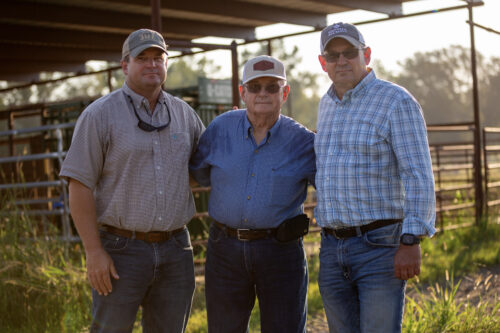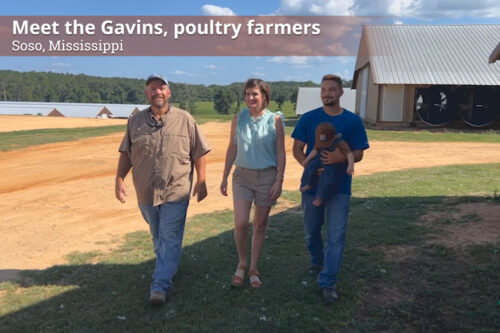Alexander Blueberry Farms
Alexander Blueberry Farms
Steve and Amanda Alexander
DeBerry, Texas / Frierson, Louisiana
Alexander Blueberry Farms encompasses farm land in Louisiana and Texas, where the Alexanders grow blueberries. Steve and Amanda Alexander own and operate the farm alongside their children, Caroline, Timothy, and Elizabeth. They also have a grown daughter, Kayla, who lives in Lubbock, Texas, with her 5-year-old daughter, baby and husband. Their blueberries are sold to grocery stores across the region.
Steve grew up on a dairy farm where he worked with his father and brother. After deciding in his mid-20s that he wanted to start his own farm, he purchased and raised heifers while still on his dad’s property. In 1991 he decided to go out on his own and leased a dairy farm in Louisiana where he started milking his own herd. After overcoming many obstacles with grit and determination, his dairy operation grew and thrived.
Blueberry Diversification
In 1995 Steve and Amanda purchased acreage in Louisiana and planted blueberries to diversify their income stream while continuing to operate the dairy farm. In 2004, a dairy farm came up for sale in East Texas, and the Alexander family purchased the property with plans to continue the dairy operation. Three years later, they decided to plant blueberries on the new farm in Texas, along with the farm in Louisiana, and built a packing facility on the Texas property. Up until this time, they had all their blueberries packed at an outside facility. The Alexanders packed their first blueberry crop on-site in their own packing facility in 2008. Tough times struck the dairy industry the following year, causing Steve to shutdown the dairy operation and focus entirely on berries.
“What many people do not realize is that it takes between six to seven years to get a good blueberry crop, and that’s a long time to wait, but we did it and are glad we did,” commented Amanda.
Amanda grew up in Kentucky until the eight grade, when her family moved to New Iberia, Louisiana. She worked as a schoolteacher until she and Steve married and had their first child, after which they decided she would stay at home with the baby and help Steve with the farm, which she still does today.
Machinery Investments
“We all help out with the blueberries,” said Amanda. “Our kids grew up helping on the farm and still do. It’s a family business.” In addition to the on-site packing facility, Steve and Amanda have made other improvements to their blueberry operation.
“You have to make changes and adapt to the demands of the market,” explained Amanda.
Take, for instance, the color and soft berry sorters that improve their operation. In total, they use three different sorting machines to enhance the quality of their crop. The machine used for color sorters has two cameras that detect the color of the fruit and software that allows the user to determine the colors of the berries that should be discarded.
The soft sorter machine detects how firm or soft every berry is. The user sets the sensitivity of the sensors to control the firmness of the fruit that is to be rejected. Those berries are then rerouted onto a discharge conveyor belt.
The third machine is a combination sorter of both color and over-ripe berries. This machine has two sets of optical cameras. There are two cameras for each sorting channel on the sorting conveyor belt. Upper and lower cameras allow for more surface area of every single berry to be inspected as they fall on the sorting conveyor belt. At the beginning of the season, the machine can be set to discard red and green berries. At the end of the season, or whenever needed, the machine can be set to discard overripe berries. Overripe berries are detected with infrared light wavelength built into the cameras. Each sorting channel is aligned with a corresponding reject air jet. Upon receiving a signal from the electronic/optics subsystem, the air valve opens and high-pressure air is released. The high-pressure air from the air jets deflect defective fruit onto another conveyor belt.
With all three machines combined, each berry is viewed three times for softness and three times for color in one pass. Such technology significantly increases the pack-out quality of the blueberries, maximizes efficiency, and improves their bottom line.
“A business in agriculture has many challenges such as adverse weather, labor shortages, markets and finances, just to name a few,” explained Steve. “You have to be a fighter to overcome the challenges of farming.”
Not only did the farm overcome—it thrived. In fact, this year the Alexanders are planning to plant more blueberry acreage than ever before.
“We want to run the farm to the best of our ability and one day be able to retire,” said Amanda.
Relationship with Southern AgCredit for Farm Financing
Steve came to Southern AgCredit many years ago when he was in the dairy business, and continued to keep his business with Southern AgCredit even when he diversified to blueberries. His father was also with Southern AgCredit while he was in the dairy industry.
“I use Southern AgCredit because they are honest and flexible. Farmers face challenges that other businesses do not, which sometimes requires unique financing strategies,” Steve explained. “Southern AgCredit works with you and gives you a chance to recover from the challenges that farmers are faced with.”
“It’s never crossed our mind to do business anywhere else because Southern AgCredit knows our business and understands our needs,” Amanda added.
The Alexanders have been Southern AgCredit stockholders since 1991.
Finance Your Row Crow Farm with a Loan from Southern AgCredit
Southern AgCredit provides loans for any crop operating expenses such as land, prep, planting, harvesting, and more. Learn more about our Row Crop Loans or contact us to learn more.

